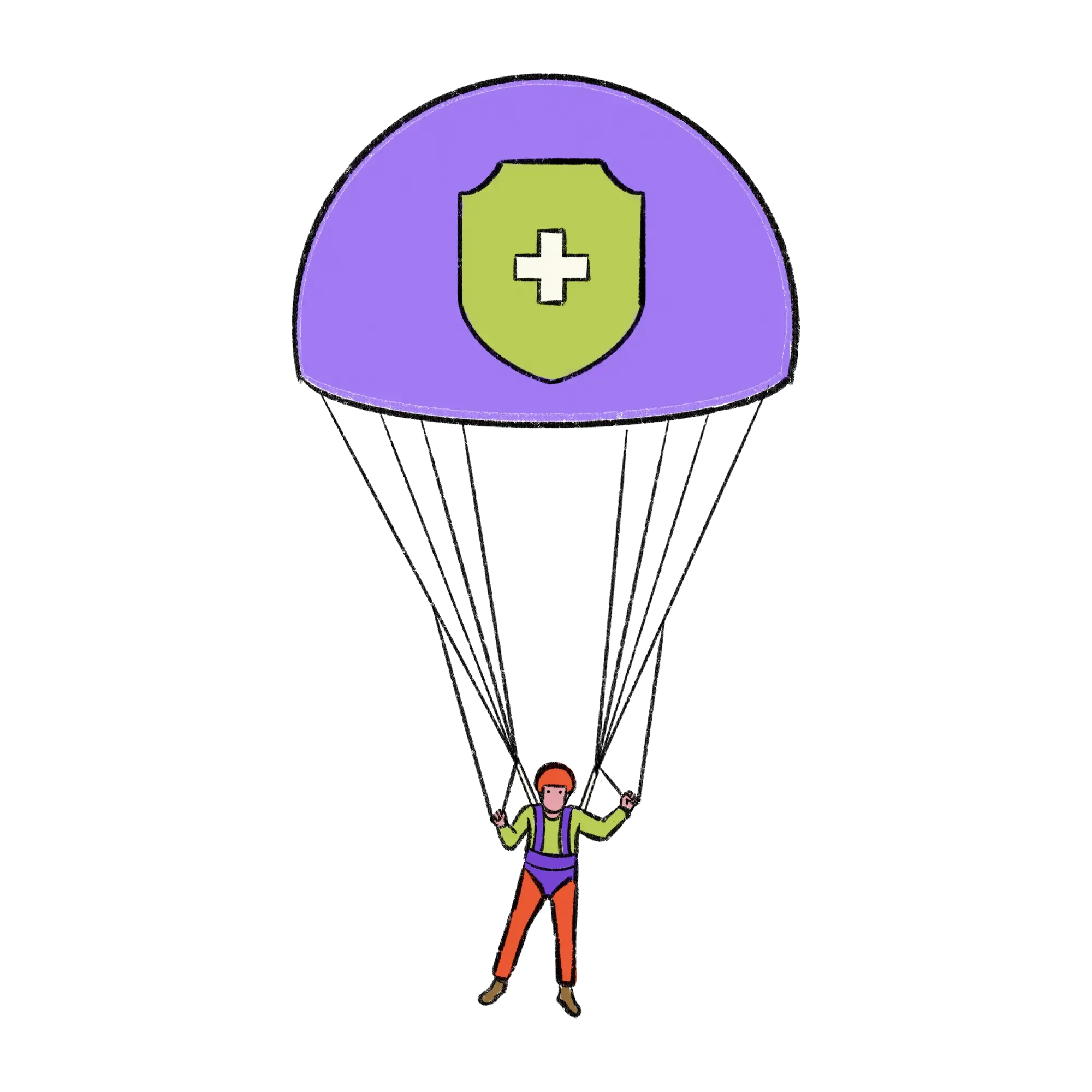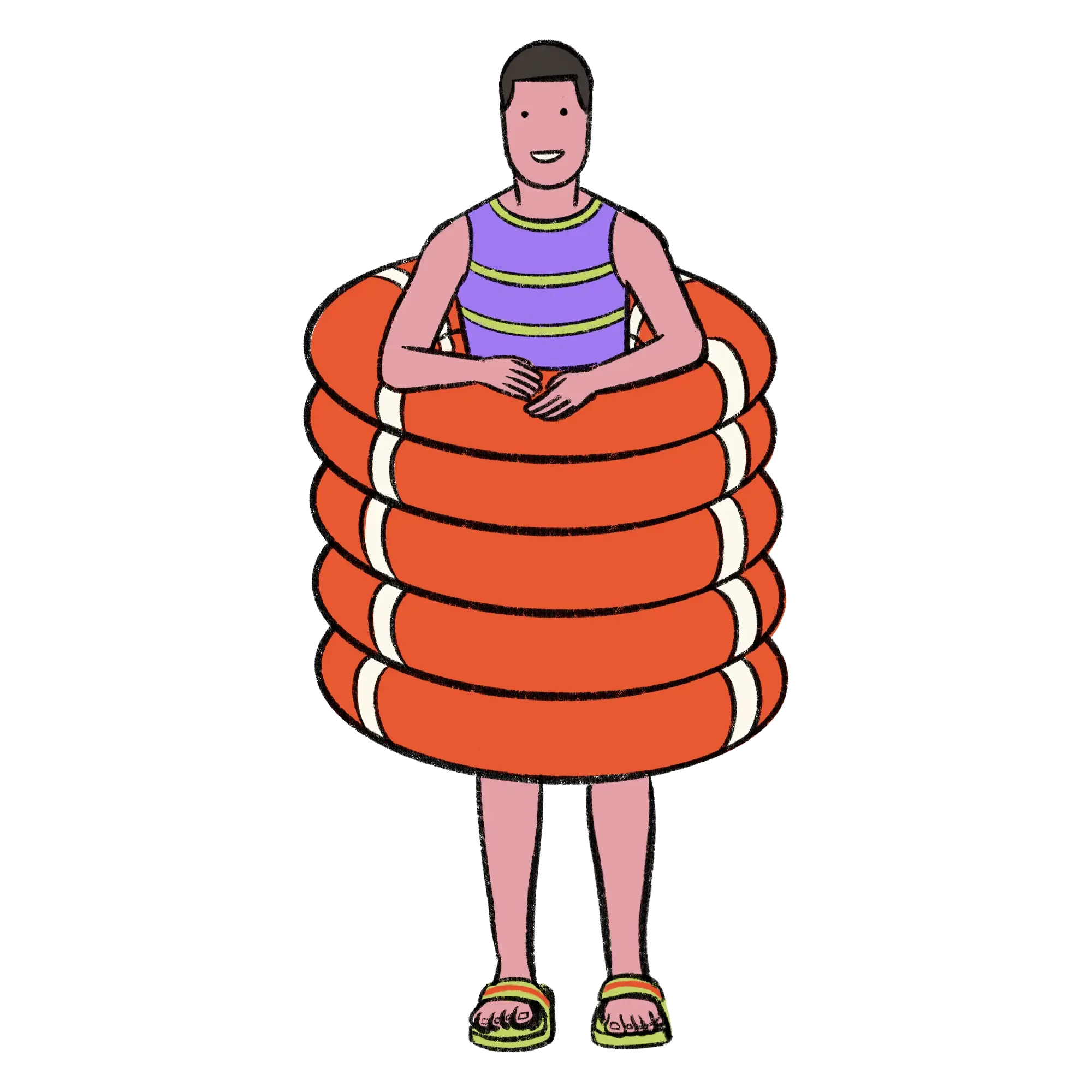Illness Benefit is a crucial social welfare payment in Ireland that employees can claim when they cannot work due to sickness.
As an employer, understanding this benefit ensures you can better support your workforce during challenging times.
How much is this weekly payment?
Let’s find out.
Further Reading
How Much Is Illness Benefit for Employees in Ireland?
The amount of Illness Benefit your employees get depends on their average weekly earnings for the relevant tax year
The relevant tax year refers to the second-last complete tax year before the year your employees claim their entitlement. So, if they make a claim in 2025, the relevant tax year will be 2023.
Employees earning more money receive higher Illness Benefit during their sick leave, while those with lower weekly earnings receive a lower rate of payment.
The 2025 weekly Illness Benefit rates in Ireland are as follows:
- For individuals with average weekly earnings below €150
- Personal rate: €109.50
- Increase for an adult dependant: €104.90
- For individuals with average weekly earnings between €150 - €219.99
- Personal rate: €157.30
- Increase for an adult dependant: €104.90
- For individuals with average weekly earnings between €220 - €299.9:
- Personal rate: €191.10
- Increase for an adult dependant: €104.90
- For individuals with average weekly earnings of €300 or higher:
- Personal rate: €244
- Increase for an adult dependant: €162
Your employee's Illness Benefit application form should state their average weekly earnings for the current tax year. They must also submit a medical certificate (Certificate of incapacity) from their doctor or general practitioner.
Find out what Illness Benefit Form your employees must submit and When Illness Benefit is Paid.
A. Conditions for Adult Dependants
In most cases, an adult dependant is the civil partner, cohabitant, or spouse of the person claiming an Illness Benefit.
The exception?
A person aged 16 or over who looks after the claimant's child and does not earn a weekly income of more than €100 may also qualify as an adult dependant of the claimant.
If your employees have an adult dependant, they can include the dependant's details on their Illness Benefit claim form (IB1 Form).
This may result in an increased weekly Illness Benefit payment for the employee, provided these conditions are met:
- The adult dependant cannot claim Illness Benefit at the same time.
- The adult dependant must not reside in another country or be in prison.
- The adult dependant’s weekly earnings must not exceed €310.
- If the adult dependant is the employee's spouse or civil partner and they’re separated, the employee must pay maintenance of at least €154 per week, and the spouse or civil partner must not be cohabiting with another person.
As mentioned earlier, the amount your employees receive for an adult dependant can vary based on their weekly income.
Illness Benefit shouldn’t be confused with sick pay. Sick pay is the amount you, as an employer, pay when your employee cannot make it to the workplace due to sickness. As per Ireland’s Statutory Sick Pay (SSP) scheme, employees have a right to seven days’ sick pay a year in 2025.
B. Conditions for Child Dependants
If your employees have child dependants, they may qualify for an increase in their Illness Benefit payment rate.
In 2025, the increase rates for a child dependant are:
- €50 for children under 12 years old
- €62 for children over 12.
Once again, the increase your employees may get depends on a few conditions:
- The child dependant must reside in an Irish city like Dublin.
- The child dependant shouldn’t be in the legal custody of someone else.
- The child dependant must be living with the employee.
- The child dependant must not already receive social welfare payments in their own right.
- If the child is over 18, the employee can continue to receive an increase until three months after the child leaves second-level education. (Employees can also claim the increase if their child starts work immediately after leaving school.)
Remember: Employees may only receive a half-rate increase for a child dependant if their spouse, civil partner, or cohabitant earns between €310 and €400 a week.
3 FAQs About Illness Benefit Payments in Ireland
Below are the answers to some questions about Illness Benefit in Ireland:
1. Do Employees Pay Tax on Illness Benefit in Ireland?
Your employees pay tax on Illness Benefit payments in Ireland. Additionally, any increases they receive for qualified adults are also subject to tax.
However, these payments are exempt from Universal Social Charge (USC) and Pay Related Social Insurance (PRSI), and employees aren’t taxed on the increases they receive for child dependants.
Note: Illness Benefit is paid in full without any direct tax deductions. Revenue reduces the employee’s tax credits and rate band to account for the tax amount.
What are tax credits and rate bands?
Tax credits are given to people who regularly pay income tax and can be used to reduce the amount of tax payable. A rate band refers to the percentage of tax charged on the income.
2. Can Employees Pair Illness Benefit with Other Social Insurance Payments?
It’s possible for your employees to receive Illness Benefit at the same time as other social welfare entitlements, such as:
- Blind Pension
- Carer’s Benefit
- Disability Allowance
- Disability Benefit
- Widow’s, Widower’s, or Surviving Civil Partner’s Pension
- Domiciliary Care Allowance/Carer's Support Grant
- Working Family Payment (WFP) and Back to Work Family Dividend (BTWFD)
- Back to School Clothing and Footwear Allowance (BSCFA)
Have your employees been receiving Illness Benefit for at least 6 months?
Then, they can apply for a Partial Capacity Benefit (PCB).
PCB is an Irish social welfare scheme that allows employees to return to work or self-employment and continue receiving payments from the Department of Social Protection (DSP).
If employees don’t qualify for Illness Benefit, they may be eligible for Supplementary Welfare Allowance. It’s a weekly payment for those who don’t have enough income to meet their basic needs and the needs of their dependants.
3. How Long Can Employees Receive Illness Benefit For?
The duration of Illness Benefit payments for your employees depends on their illness period and PRSI contribution record.
- Employees with at least 260 weeks of PRSI contributions can receive Illness Benefit for a maximum of 2 years.
- Employees with 104 to 259 weeks of PRSI contributions are eligible for payments for up to 1 year.
Before an employee’s Illness Benefit payments are due to end, the Department of Social Protection (DSP) will notify them of the final payment date.
If an employee is permanently incapable of work after Illness Benefit ends, they may qualify for Invalidity Pension.
Payments will also end if an employee reaches 66 years of age during the benefit period, at which point they may transition to the Irish State Pension (Contributory).
There are no paid days for the first three days of illness. These are known as ‘waiting days.’ This is put in place to see if you can recover before requiring any day of payment.
Use Kota to Manage Employee Benefits With Ease
Illness Benefit is among the many Irish employee benefits for those out of the office due to poor health.
Other benefits, like health insurance for consultations, checkups, and surgeries, are also essential for employee welfare.
Want to offer employee health insurance as an employer in Ireland?
Use Kota!
Kota helps employers, self-employed people, and contractors manage health insurance and retirement benefits effortlessly. Once you have set up your contributions, employees can choose benefit packages based on their needs.
Join Kota to enrol, manage, and scale your benefits — all in one platform!










.svg)
.svg)
.webp)
.webp)
.png)
.png)
.png)

.png)
.png)
.webp)
.webp)
.webp)
.webp)
.svg)
.svg)
.svg)


